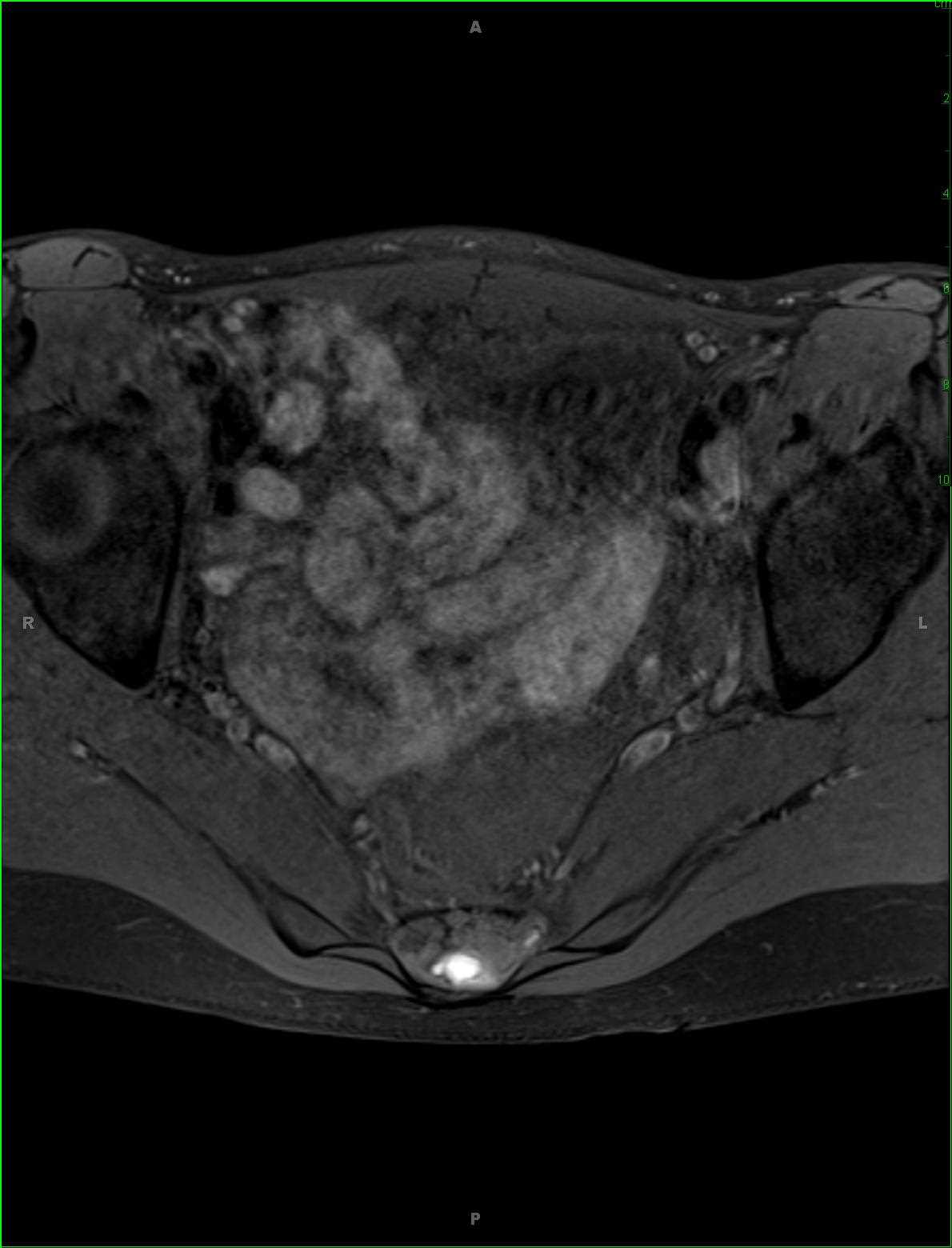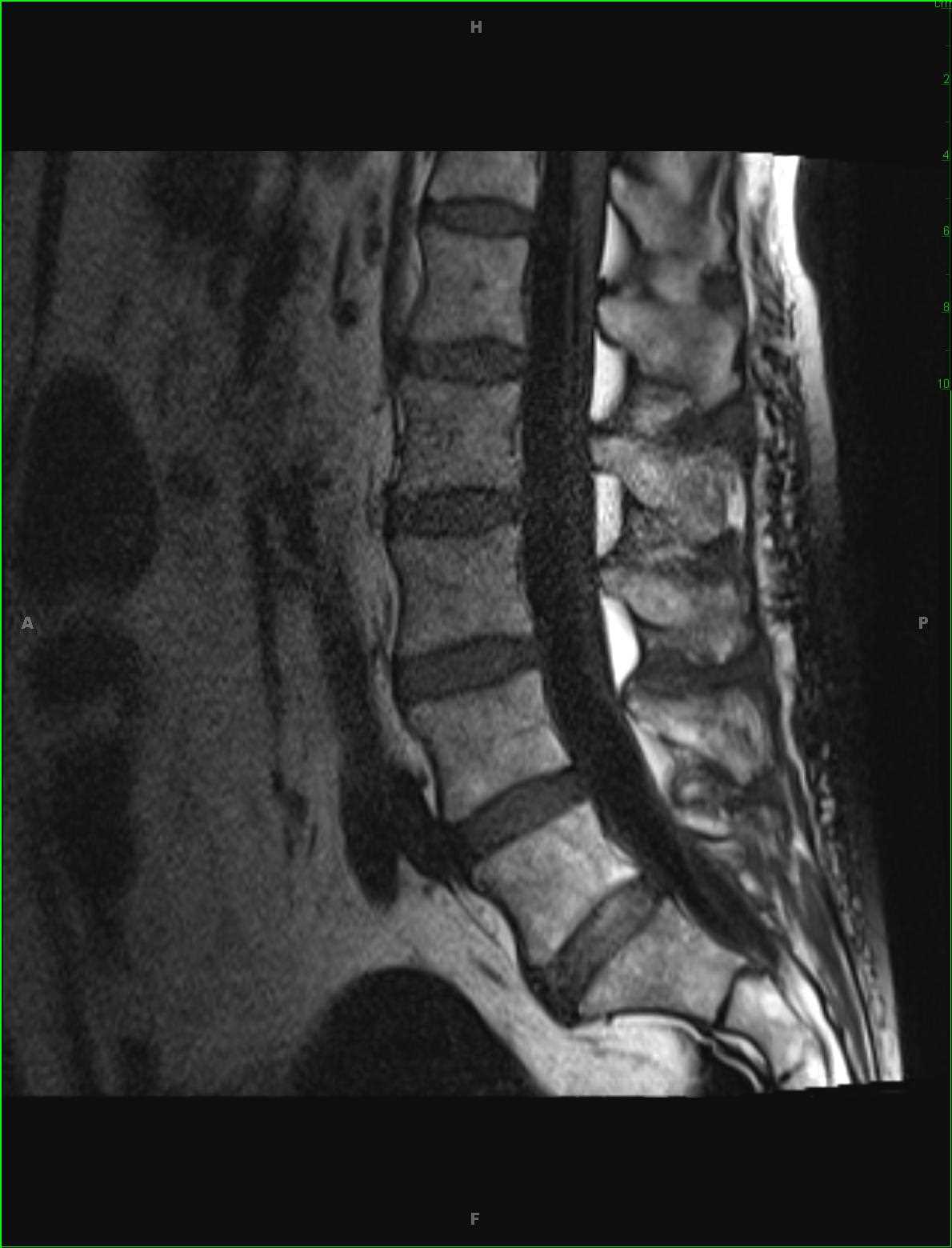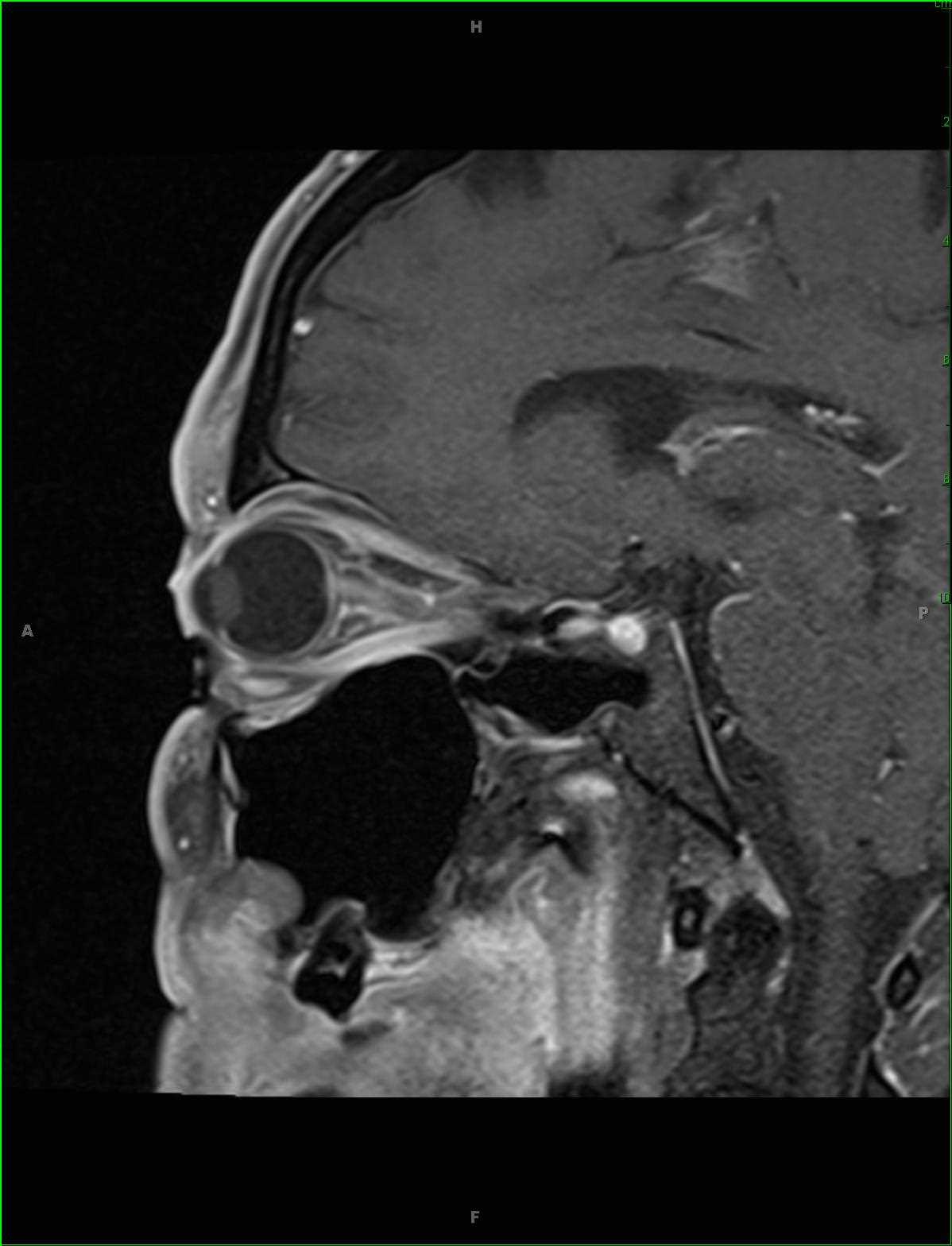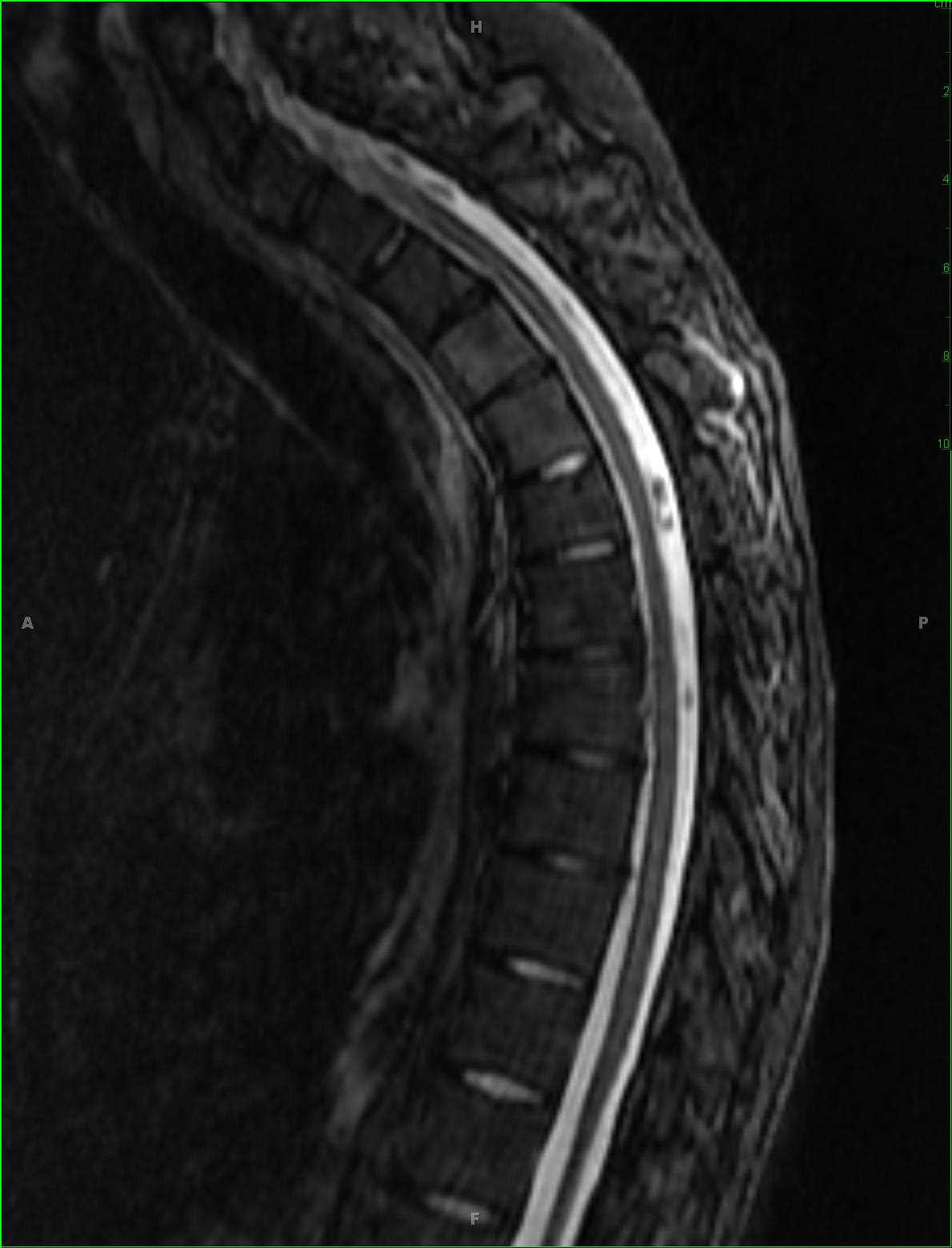
- 2
- ,
- 3
- 8
- 1
To Quiz Yourself: Select OFF by clicking the button to hide the diagnosis & additional resources under the case.
Quick Browser: Select ON by clicking the button to hide the additional resources for faster case review.
CASE NUMBER
269
Diagnosis
Chordoma
Note
68-year-old female who presents for chronic lower back pain. There is a poorly circumscribed lesion arising at the S3 and S4 vertebral levels with effacement of the residual spinal canal at that site and involvement of the posterior elements. The lesion demonstrates heterogeneous internal signal intensity with components that are both T1 and T2 hyperintense compatible with evolving hemorrhage. There are scattered punctate regions of susceptibility on the fluid sensitive images compatible with hemosiderin deposition at those sites. On postcontrast imaging, there is irregular mural nodularity with heterogeneous enhancement. Given the patient age and location, chordoma was favored preoperatively. The differential includes plasmacytoma, chondrosarcoma, metastatic disease and possibly giant cell tumor. Chordomas result from embryonic remnants of the primitive notochord. In older adults, lesions typically involve the sacrococcygeal region. Lesions are slow growing and present due to mass effect on surrounding structures. The lesions typically consist of fluid and gelatinous mucoid substance with regions of necrosis. Treatment is with surgical resection with radiotherapy and repeat surgery offered for recurrent disease.
THIS IS CASE
269
OF
396












